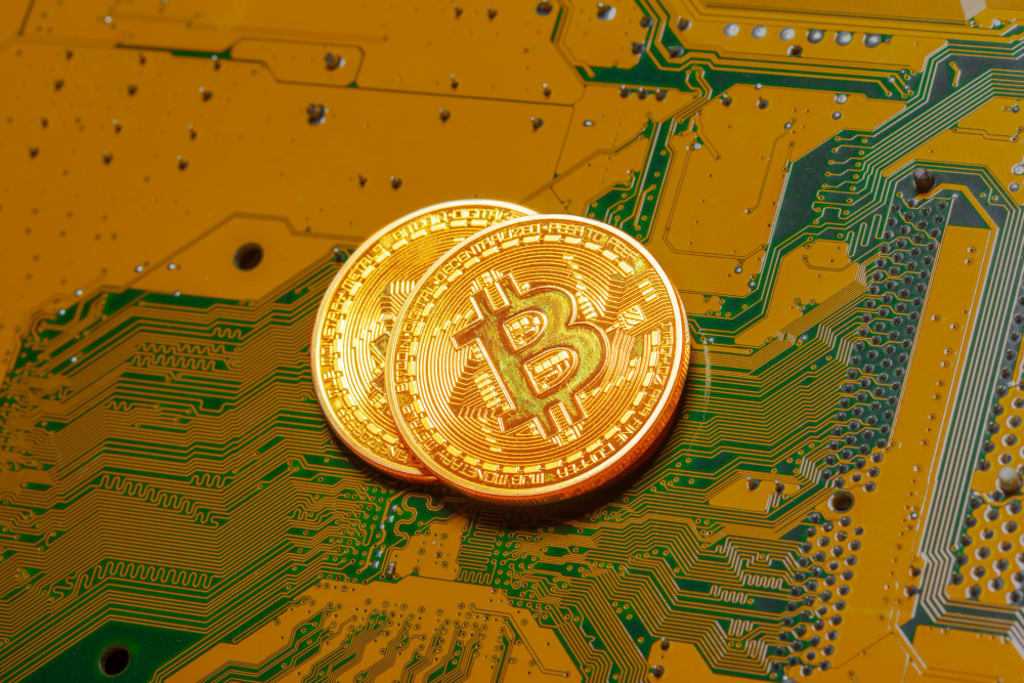The blockchain does not eliminate the need for trust
Crypto market

A typical thought regarding the blockchain, the innovation that powers Bitcoin and other digital forms of money, is that it can "make trust", or permit two gatherings to make an exchange "without depending on trust".
If valid, this implies we could make a world without a trusted "man in the center". We could have monetary administrations without bank checking exchanges and we could move responsibility for (house, for example) without a legal counselor. Be that as it may, this thought is off-base.
The blockchain doesn't make or take out trust. It just proselytes trust starting with one structure and then onto the next. While we recently needed to trust monetary establishments to check exchanges, with the blockchain we need to trust the actual innovation.
It is likewise not satisfactory that blockchain-fueled cash (like Bitcoin) can go standard without the support of a confided-in power. Truth be told, there are not really any instances of cash (counting gold) that have at any point worked without the sponsorship of a focal power or a sovereign.
At the point when you bring in conventional cash move the bank will initially confirm that you have adequate money, and afterward charge your record and credit the beneficiary. Consider the blockchain as a decentralized variant of this cycle. As opposed to this data being all held and confirmed by the bank, it is finished on an "open public record".
At the point when somebody moves a Bitcoin, it is checked by "excavators" (truly strong PCs), then encoded, and a "block" is added to the record.
Since the confirmation is all finished by the actual framework, the thought is that clients needn't bother with a confided-in focal power. All things considered, trust is moved from one focal power (like a bank) to many decentralized, mysterious members (the excavators).
Be that as it may, here lies the issue - clients should trust the innovation and the administration of the framework.
What is trust?
In financial trades, there are three sorts of trust: organizations-based, trademark-based, and process-based.
Foundations-based trust comes from the contribution of focal power. Consider a business bank (and an administration protecting stores in that bank), as in the past model.
Trademark-based trust is the trust we have in individuals for the most part since they address a similitude to us of some kind, or show excellent highlights or values that warrant trust. For instance, you are bound to trust somebody from the area where you grew up more than somebody from somewhere else; you could likewise entrust somebody with a comparative desire for music, or who essentially typifies what you esteem throughout everyday life.
Process-based trust emerges when past encounters recommend that the contributions by one party will be typically responded to. This trust frequently develops into social miniature guidelines or standards. For instance, the vast majority would by and that's what large believe in the event that they don't hurt an individual, that individual will likewise not hurt them. Moreover, one would believe that others will respond when posed an inquiry.
It follows that trust can be annihilated and lost assuming the focal authority fizzles, the individual you trusted comes up short, or the cycle you trusted falls flat.
With regards to the blockchain explicitly, we can see that there are no less than two types of this trust at play. In light of its intricacy, many individuals might find it challenging to trust the cycle.
Be that as it may, some might decide to trust it when similar individuals use it (trademark-based trust). For sure, companions of geeks in a similar circle as Vitalik Buterin, the pioneer behind the Ethereum digital currency, possibly turned out to be early adopters of the innovation.
However, an alternate sort of trust may likewise be influencing everything. For example, when the Ethereum-controlled decentralized independent association (DAO) was hacked, clients requested that Buterin answer. This shows that individuals actually need a focal power or will engage one assuming that the framework comes up short. In like manner, the phony news that Vitalik had kicked the bucket prompted US$4 billion bucks to be cleared off the market worth of Ethereum. With the accepted loss of the focal power, many likewise lost their confidence in the hidden framework.
This may not be ideal yet a really open public blockchain (that is, one with next to no focal power behind it) is probably not going to work.
Investigation of the advancement of cash shows that practically all monetary forms since the beginning of time have had the sponsorship of power. This is straightforward. Consider a crude gold chunk. To make certain about its worth you would have to trust a diamond setter - a valuation authority. Since this course of distinguishing the nature of gold takes time, crude gold isn't the best vehicle of trade.
This issue with gold was to a great extent settled by the formation of the mint. All in all, the printing and normalization of gold coins diminished the ID expenses and in this way the need to trust decentralized outsiders like the gem dealer. All things considered, there was presently a need to trust a focal power - the mint.
You likewise need to believe that the public authority will acknowledge charge installments in the stamped gold coins and that others will accept the coins as installments for labor and products. All the more for the most part, on the off chance that individuals lose trust in the power and the worth of money, they will attempt to sell the cash, prompting expansion or even excessive inflation.
Every one of these shows that gold and some other type of cash - including digital forms of money - are not "trustless".
The significance of the believed focal authority can likewise be perceived in the situation where money is obliterated. For instance, when the Roman realm fell, the focal authority imploded thus did the money it supported. Process-based trust imploded too, which shows that the cycle just worked due to the organization.
On the off chance that set of experiences is any aide, secretly made cash, for example, Bitcoin or some other blockchain-based money is probably not going to turn out to be universally acknowledged without a confided in focal power. This implies that an "open" blockchain won't succeed. Albeit a "shut" blockchain, fully backed by a focal power, could work, it would be totally different from the center element of Bitcoin and the blockchain - decentralization.
If you like to get rich with bitcoin you can get access from
>>Here<<How To Get Rich With Bitcoin Even If You Have No Clue About Technology
Do you like to Reap Massive Crypto Profits?
About the Creator
Sithum Chathumina
I am an experienced cryptocurrency trader and I am an expert in trading






Comments
There are no comments for this story
Be the first to respond and start the conversation.